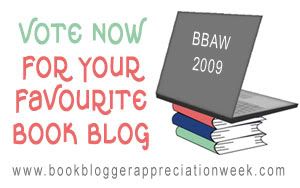Nobel laureate rejected
From:
By Jennifer SextonJuly 15, 2006
IT is one of the most lauded novels in Australian literature, but when Patrick White's The Eye of the Storm was submitted to 10 Australian publishers, not one of them would have published it.And in many cases the rejection letters received by The Weekend Australian for the book by the Nobel prize-winning author were insulting.
In one case the reply referred to British novelist and critic David Lodge's "how to" book on writing fiction.
Under the Patrick White anagram Wraith Picket, chapter three of the novel was submitted, with the title altered to The Eye of the Cyclone and with only the names of the characters changed.
From 12 submissions, 10 rejected it and two have not indicated their intentions more than two months later. Seven publishers - including big names Pan Macmillan and HarperCollins, independents ABC Books, Text and Scribe - and three leading agents were sent the manuscript in May.
Allen & Unwin sent a note asking for three months to look at it and independent Limelight Press has not replied.
No one recognised White's genius. When the experiment was revealed yesterday, only Text expressed some concern that the rejections could reflect a less than learned and vigilant culling process.
In his rejection letter Nicholas Hudson of Hudson Publishing said the writing left him perplexed.
"We regret that we cannot make an offer for publication. Why? The first and easy answer is that we try to curb all desire to publish novels. This is a matter of self-preservation: the Harold Park Trots are by comparison a rational way of earning a living. "As a result I cannot really give any sensible critique of the work, but what I read left me puzzled," Mr Hudson said. "I found it hard to get involved with the characters, so it was not character-driven, nor in the ideas, so it was not idea-driven. It seemed like a plot-driven novel whose plot got lost through an aspiration to be a literary novel. It was very clever, but I was not compelled to read on." Mr Hudson yesterday recalled reading the manuscript and said in the letter he was being polite. "I thought it was pretentious fart-arsery. I don't like White," Mr Hudson said. Mary Cunnane, whose namesake literary agency represents Mark Latham, commented in her rejection letter that the manuscript was in need of work. "Alas, the sample chapter, while reply (sic) with energy and feeling, does not give evidence that the work is yet of a publishable quality," wrote Ms Cunnane, an agent for three decades. "I suggest you get a copy of David Lodge's The Art of Fiction (Penguin) and absorb its lessons about exposition, dialogue, point of view, voice and characterisation." Ms Cunnane said yesterday she made "no apologies" for rejecting the work. "It's like taking a square metre of the Sistine chapel and saying, 'what do you think, is this a great work of art?'," she said. "Patrick White was clearly one of the greatest novelists of our time. For whatever reason (this chapter) didn't resonate with me. "I wonder what Patrick White would have made of this experiment. I think he would have had something very derisive to say." The Sunday Times of London earlier this year submitted a chapter of VS Naipaul's Booker Prize-winning novel In a Free State under a pseudonym and received 20 rejections. Another veteran agent, Lyn Tranter of Australian Literary Management, was not enthusiastic about the chances of making it into print. "I'm sure you can appreciate that an agent must be totally committed to a work to sell it enthusiastically to a publisher; to do otherwise is not in the best interests of the author," Ms Tranter said. Yesterday, Ms Tranter said the experiment was "piss-weak". "I am looking at one thing and one thing and one thing only - can I sell it? And the answer is no, I can't sell The Eye of the Storm," she said. "As a literary agent my job is to secure the interest of the public." Cameron Creswell Agency explained their list of clients - including Don Watson, David Williamson and Frank Moorhouse - was already long and new authors were only taken if "we believe very strongly in their writing". Pan Macmillan acquisition editor Daniel Carlyle's rejection letter included tips on where to get the work evaluated. "If you are after critical analysis, it may be a good idea to join a writers' centre. There are centres in each state and these communities provide access to proofreaders, mentor programs and inside information about the publishing industry." Smaller publishers Scribe Publications, Text Publishing and Giramondo Publishers all said they read the offering but sent rejection letters with little individual feedback. Aviva Tuffield, Scribe's fiction acquisitions editor and until recently the deputy editor of the Australian Book Review, said the publisher's list of fiction was limited but slowly expanding and that the manuscript was not "suitable for the emerging list".
Saturday, July 15, 2006
Subscribe to:
Post Comments (Atom)



1 comment:
that's quite an expose on one person's rejections. Stephen King states somewhere that he had enough rejection letters to wallpaper his office - so lots of them - some use their rejection letters in quite unique ways - everyone gets rejected because the publishing/editing/agent business is very subjective - but keep your head up as eventually someone is going to say yes - E :)
Post a Comment